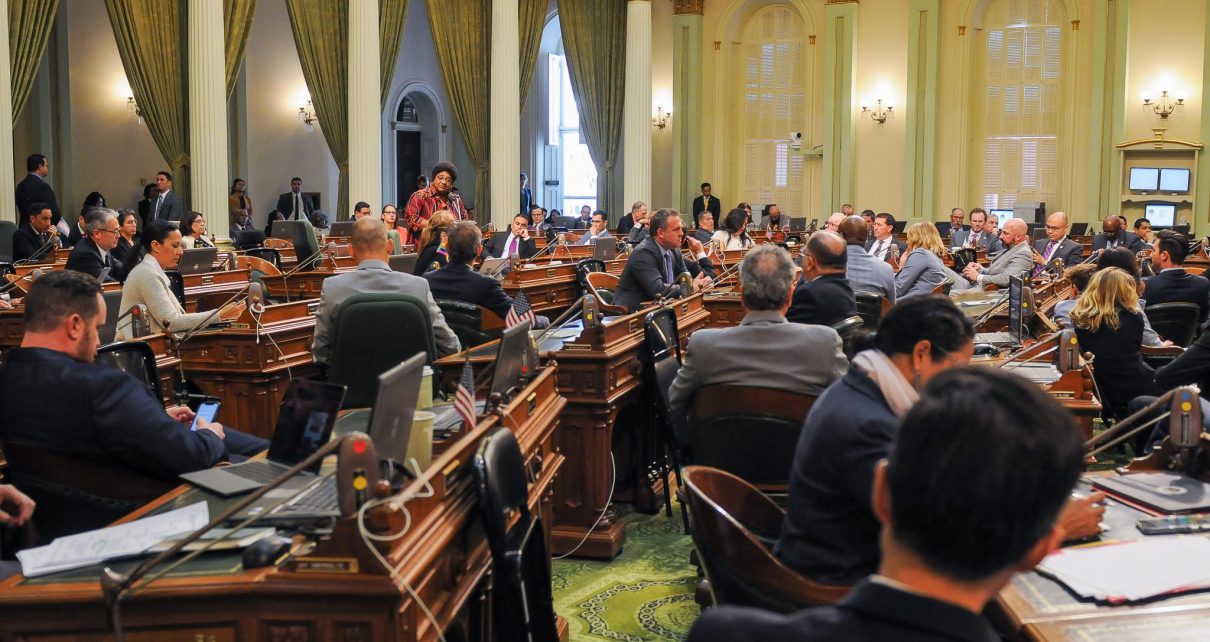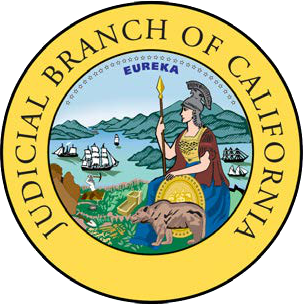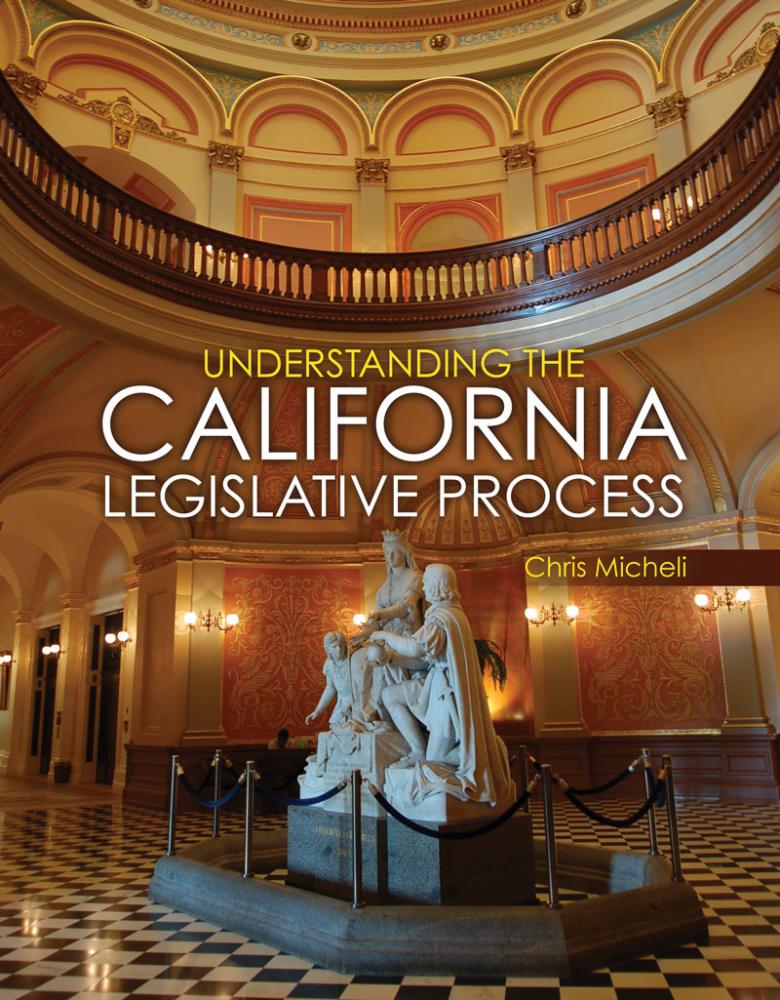
California State Assembly. (Photo: Kevin Sanders for California Globe)
Role of Leadership Staff in the Lawmaking Process
Balancing competing interests while keeping caucus members happy is akin to ‘herding cats’
By Chris Micheli, February 21, 2020 6:15 am
There are four legislative leaders representing the two political parties in the two houses of the California Legislature. These four individuals are elected by the members of their respective caucuses. In addition, for the Assembly Speaker and Senate President pro tempore, their elections are confirmed by a majority of their respective houses after their caucus members nominate them for this office. The two Minority Leaders are elected to their respective positions by their caucus members, rather than the entire legislative house.
Staff for the four legislative leaders play a critical role in ensuring that the legislative process — considering and voting upon thousands of bills and the state budget with corresponding trailer bills — goes relatively smoothly during the entire Legislative Session. These staff members, like their bosses, must balance competing interests all the while keeping their respective caucus members happy. Many describe this process as akin to “herding cats.”
While tremendous power over the legislative process rests with the two house leaders, it also requires tremendous work and sacrifice to make those offices function at a high level during the tenure of the individual leaders. Often when the leader termed out of office, so did their senior staff due to the grind of the job over the years. However, with the new term limits law, it is unknown the impact on the leader and senior staff. Many hope that key leadership staff will remain for the tenure of their bosses.
In order for the two houses of the Legislature to properly and efficiently operate, there is great reliance upon the leadership teams and their professional staff members. These individual staff have to serve their members, serve their house, and serve the People of California. It is a difficult job, but one that wields enormous influence over the development and implementation of state public policy.
In the offices of the leaders of the Assembly and Senate, there are both personal and leadership staff members. Personal staff are those who work for the individual legislator and on his or her bills and constituent work. Leadership staff not only work for the legislator, but also for the broader party caucus.
Both leaders have large policy staff who are assigned several policy committees to keep tabs on. These individuals must monitor the activities of the policy and fiscal committees, become involved in the major bills as they make their way through the process, ensure the caucus priorities are being attained, and apprise the house leader regarding any problematic issues or measures. They are often involved in the major pieces of legislation ensuring their party’s priorities are met and shaping bills to ensure passage on the floor of their house.
At the end of session, leadership staff have to work to make sure their members’ bills are being dutifully considered by the other house and alerting their leader of any problems so that they are prepared to deal with concerns raised by their caucus members. In performing these functions, the leadership staff are dealing directly with caucus Members and staff, as well as their committee staff, in order to stay abreast of all the major bills and issues pending in both houses as the Legislature throughout the year.
The leadership staff often have served as committee consultants, or worked for several legislators in the past, and they have expertise in multiple subject matters so that they understand the process and numerous policy areas. Also, they must possess political acumen as they are at the forefront of the crossroads between policy and politics. They possess an understanding of not only the policy implications of pending legislation, but also the political aspects of a bill and the interest groups for and against the proposed policy changes.
These policy consultants for the Speaker and President pro Tem report to their respective Policy Director. That individual oversees the consultants and is the main liaison between caucus members and the house leader on pending legislation. The Policy Director is an experienced individual with years of service in the Legislature who has been exposed to numerous policy areas and fully understands the political and policy implications of legislation.
In addition, both the Assembly and Senate leadership staff work with their respective Floor Analysis Units to ensure proper and timely consideration of legislation and amendments, especially around critical legislative deadlines. This requires coordination among the leader’s office, majority and minority floor leaders, and the Assembly Chief Clerk and Senate Secretary.
Also serving the two house leaders are Budget Directors who ensure that the caucus priorities are reflected in the budget bill and corresponding trailer bills. These individuals know the ins and outs of the state budget and the process itself, usually having served on the budget committee staff for years. They help negotiate the budget provisions that require the involvement of the Speaker and President pro Tem, working closely with the Governor’s staff and the Department of Finance.
Both legislative leaders also have a press secretary or someone charged with communications. This person serves as a liaison with the Capitol Press Corps and works to ensure that the media cover the top issues in the best light for the majority party. These individuals often have been journalists themselves, or worked on campaign press operations, and have an appreciation for the role that the media play in the legislative process.
The Speaker’s Office of Majority Services (SOMS) assists the majority party’s caucus members focusing on providing services to legislators and their staff of a non-policy nature, such as advising them on constituent outreach and mail, as well as the political implications of legislation and policy issues.
There is also the Senate Office of Research (SOR), a bipartisan office that is charged with serving the research needs of the California State Senate and developing policy initiatives for Senators and committees. SOR tracks emerging state and federal issues. It also prepares background information for the Senate Rules Committee to consider when reviewing the governor’s nominees during confirmation hearings.
- Legislative Intent Does Not Equate to a Mandate - April 27, 2024
- Frequently Asked Questions about State Agency Ethics Training - April 26, 2024
- Frequently Asked Questions about When Elected Officials Take Office - April 25, 2024




